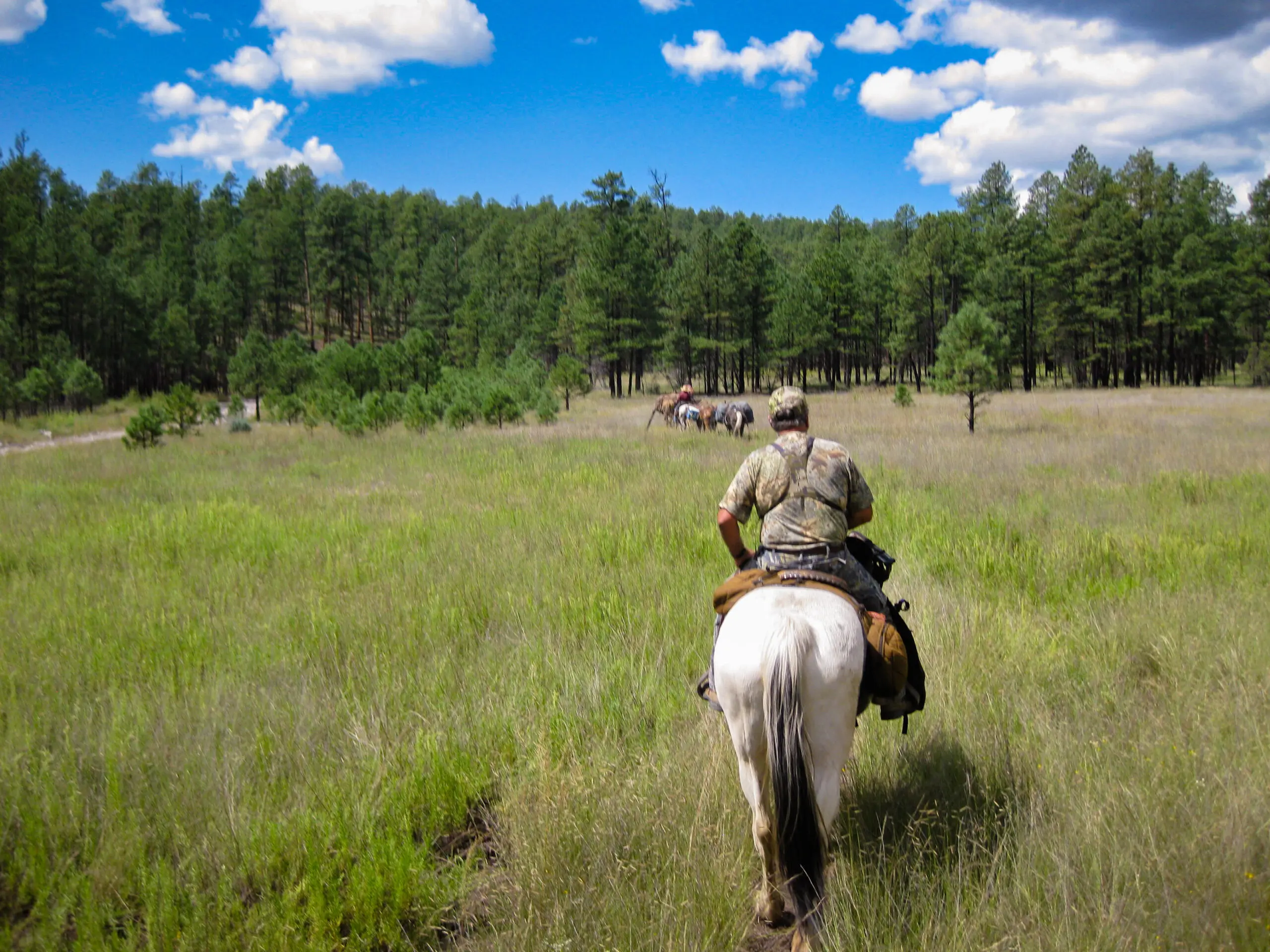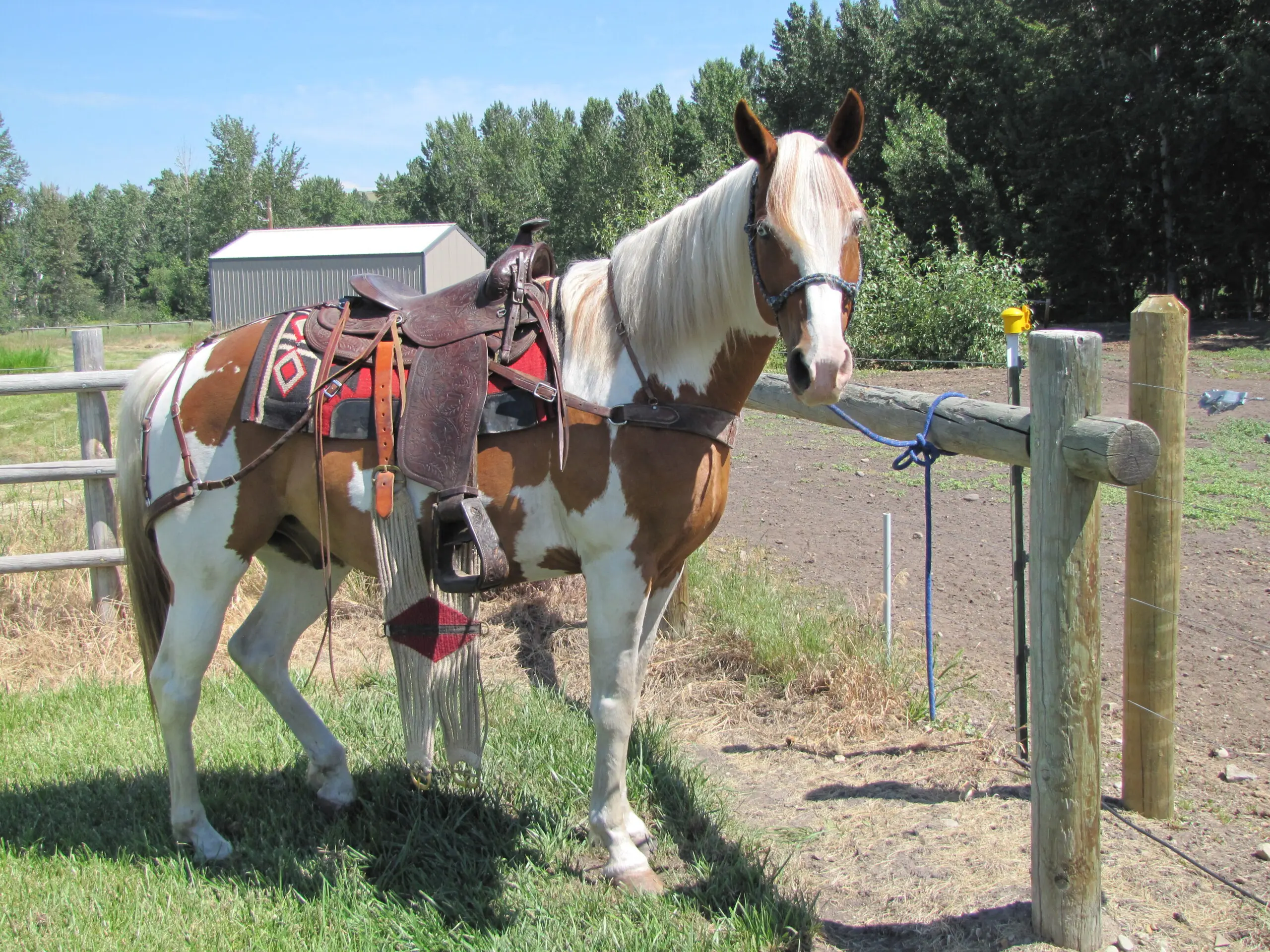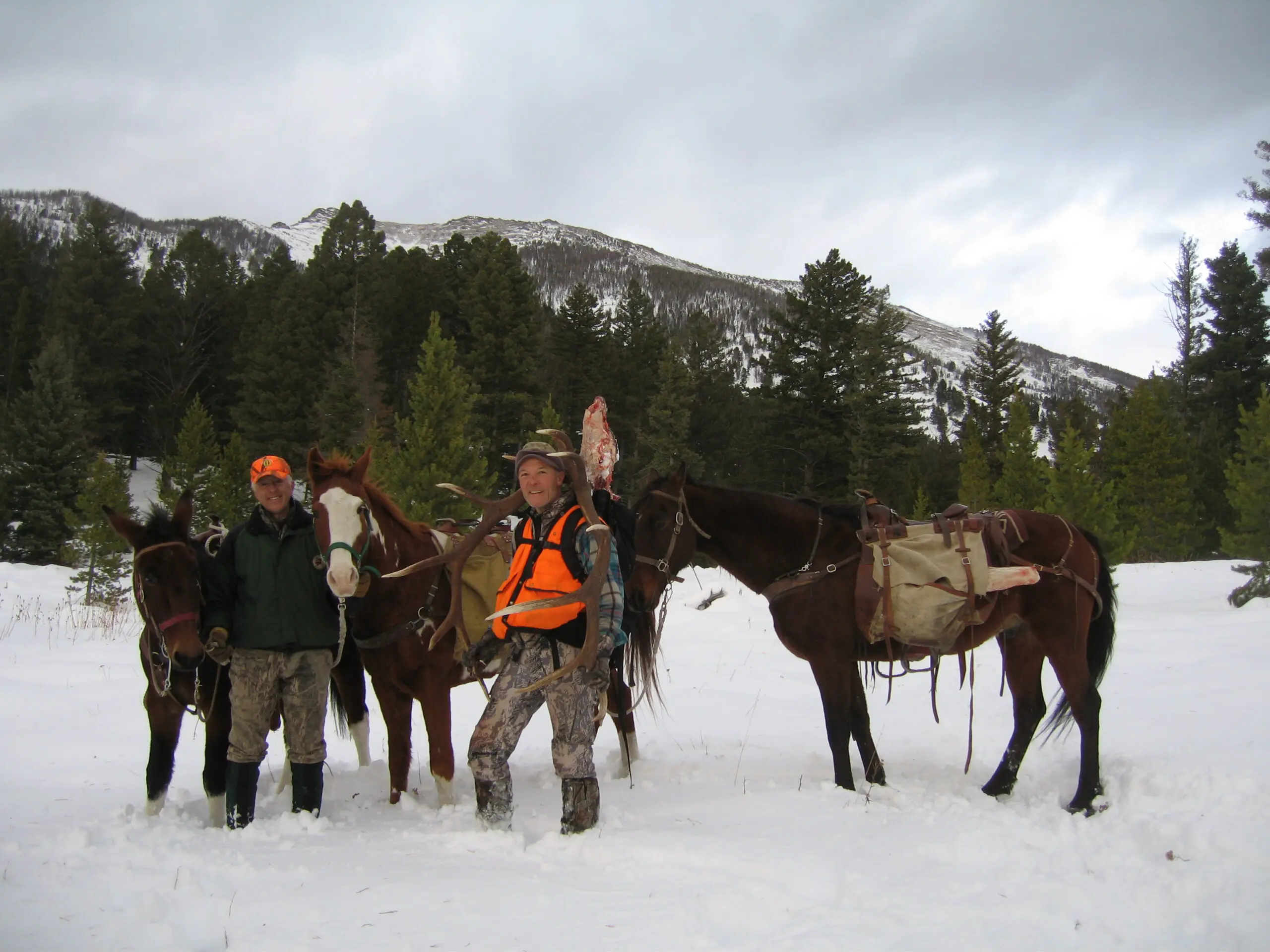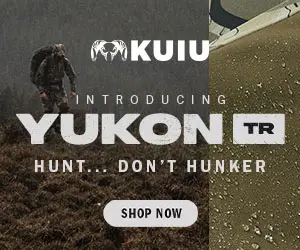
NOTICE: Certain links on this post may earn a commission for Western Hunter Magazine from Amazon or our other affiliate partners when you make a purchase. Thank you for your support.
Off-Season Activities for the Hunting Horseman
Ways to Improve Skills, Prepare your Stock and Give Back
This time of year as I drive back and forth across Montana, I often see large and small bands of horses and mules out on winter pasture. Most of them are pack strings waiting out the winter in large groups in wide open spaces. Others can be young stock, bucking horses, or whatever. As I drive by, I often say to myself, “I wonder where those guys will be this summer; maybe up on some high divide in “The Bob”, or out in the backcountry grazing quietly around an outfitter’s campfire or group of DIY backcountry hunters or riders.

Winter Quiet Time
Winter is a “quiet time” for most horse people in the West, unless they are actively using them for events. Even though our stock may be out to pasture, winter is a great time for the hunting horseman to do other things related to the pastime we love. I like to use this time to go through all of my packing and riding gear and repair any worn straps, torn packs or manties, and to reorganize my other gear, such as cooking gear, camp gear, and the like. Checking out new gear that might be useful in the backcountry or considering new techniques that might be gleaned from a workshop, book, or video is always interesting.
Then, there is thinking about new places to hunt and researching these spots, with hopes of checking them out next summer. I have a friend who is a “pro” when it comes to finding new places to hunt. He’s one of those guys who lives by the golden rule of hunting spots: “If you tell me where you’re hunting, I will not hunt there, nor will I tell others about your ‘spot.’ However, if I find it on my own, it’s ‘our’ area.” But that’s another story for another article!
This is also a great time of year to look into workshops, clinics, and other opportunities to learn, and also share your own skills with others. This winter one of my new hunting partners enrolled in Smoke Elser’s packing class, so it has been fun to visit with him about what he has learned. Next summer we will actually test him to see if he really earned his “packing certificate.”
Back Country Horsemen
This is also a great time to look into the programs and clinics that the local chapters of Back Country Horsemen put on in our area. We have several BCH chapters in western Montana, so one can go to several different workshops and clinics as we await the arrival of spring. These clinics can include a wide range of subjects ranging from animal care and maintenance needs to grazing strategies, knot tying sessions, issues affecting riding opportunities on public lands, and basic horse handling for beginners. Spring clinics can include basic packing techniques, horse tune-ups and training sessions. Trail maintenance skills clinics provide an excellent opportunity for one to learn about using a crosscut saw, trail maintenance, and more. “Leave No Trace” ethics are very important and can be taught just about any time of the year.
As summer approaches, more and more opportunities present themselves for us to learn and practice our skills and prepare our stock for the approaching summer. Joining a Back Country Horseman chapter in your area is one of the very best ways for you to do this, and you’ll meet others who share your love for horses, hunting, and the backcountry. Since I began writing this column, I’ve received a good deal of feedback from hunters who use their stock for hunting. Following is a message I received from Dennis Serpa, past president of the Back Country Horsemen of California.
“Since the first issue started, you’ve had my full attention. I’m a hunter, mostly deer and elk. I have my own mules that I haul around the western states wherever we can draw a tag. I truly appreciate your writing, as there aren't too many horsemen hunters doing the DIY hunts. As a horseman, I see many of the horse hunters that only have horses for hunting and they don't get much use the rest of the year. These are the horsemen that usually have trouble with their stock or aren’t well informed in the proper way to manage stock in the backcountry. You’re doing a great job of educating the ones that read. My point here is education and using your stock throughout the summer months to get them adapted to the mountains is very important. I have a way to help! Back Country Horsemen of America!”
Dennis went on to say that by participating with BCHA, we can accomplish many things that we need to pass on to the hunting horsemen, including educational clinics on clearing trails and managing stock in camp. His summer pack trips include clearing trails for the local Forest Service Ranger District and packing tools and supplies for work parties. To Dennis, this is the next best thing to hunting, and volunteering for BCH work parties gets him and his stock in shape for the hunting season while providing much needed volunteer maintenance for the trails we all use (those trails don’t clear themselves!!). Dennis concluded with the thought that he believes that by getting active and volunteering, we can enjoy our hunting that much more.
Back Country Horsemen is a great organization to become involved with if you enjoy hunting and horses. I first learned of the organization about ten years ago and have participated in various events, clinics, and treks with two of the local chapters.

Back Country Horsemen History
The Backcountry Horseman organization was founded by Montanans Roland Cheek, Dennis Swift, and Ken Ausk, who hunted together in the Bob Marshall Wilderness. The plan for the BCH organization developed out of campfire conversations at their hunting camp in the “Bob” in 1972.
At the time, the Forest Service was considering regulations that would have required anyone wishing to take a horse into the Bob to apply for and receive a permit. The proposed new regulations were perceived by the men as a sign of things to come in the way of a push within the Forest Service and some conservation groups to limit the public land horse packers could access. They decided that they needed to try to combat that kind of thinking in the Forest Service and the BCH idea was developed. As they pondered the issue and situation, they decided to take a unique approach to the issue. Instead of challenging the Forest Service through the various public forums which were available, they decided to dedicate themselves to educating horse packers on safe, environmentally sound horse packing practices. A guidebook was developed and, along with long hours of labor improving trails and facilities throughout the Bob Marshall Wilderness and other public lands in Montana, while working collaboratively with the Forest Service, their idea and good work took root.
Leading by example, the Flathead, Montana group demonstrated how a volunteer organization alone, or with the support of other groups, could pack supplies and crews into remote projects, allowing the Forest Service to do more trail work with fewer federal dollars. The result has been that by demonstrating the value of the horse packing community, most of the proposals that may have restricted horses on public land have quietly disappeared. Today, the Back Country Horsemen organization has spread from Montana to a national organization with more than 16,000 members, with chapters in 25 states from Alabama to Alaska. Montana, alone, has 17 chapters.
Back Country Horsemen of America (bcha.org)
Purpose: To perpetuate the common sense use and enjoyment of horses in America's backcountry and wilderness; to work to ensure that public lands remain open to recreational stock use; to assist various agencies responsible for the maintenance and management of public lands; to educate, encourage, and solicit active participation in the wise and sustained use of the backcountry resource by horsemen and the general public, commensurate with our heritage; to foster and encourage formation of new Back Country Horsemen organizations.
BCHA “Leave No Trace” Stock Users Education Program
To educate, encourage, and solicit active participation in the wise and sustaining use of backcountry resources by horsemen and the general public. This statement is the basis for the BCHA “Leave No Trace” (LNT) Stock Users Education Program. The BCHA Board has directed that we become the primary trainer of stock users in LNT principles and practices nationally. To that end, the LNT Master’s Education Program was established. The program is a partnership between BCHA, State and Affiliate Members, the US Forest Service, and LNT Inc. BCHA coordinates, manages, and monitors the program in cooperation with State and Affiliate memberships. Qualified BCH members are selected to become LNT Master Educators. Each of the Master Educators attends a five-day LNT course at the US Forest Service Nine Mile Remount Station in Montana. The students are taught and teach the LNT Principles and Practices outlined in the LNT Master Educators Handbook. Upon completion of the course, the Master Educators teach “Train the Trainer” courses in cooperation with the local BCH units. The LNT Trainers then put on LNT Awareness Workshops.
The focus of the BCH training and education activities is the Leave No Trace Principles:
- Plan and prepare
- Travel and camp on durable surfaces
- Dispose of waste properly
- Leave what you find
- Minimize campfire impacts
- Respect wildlife
- Be considerate of other visitors

